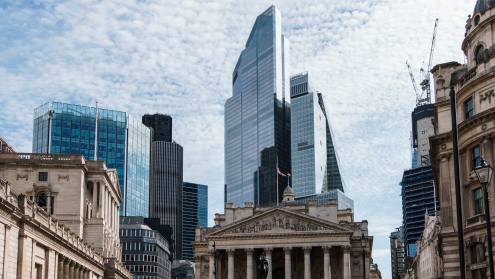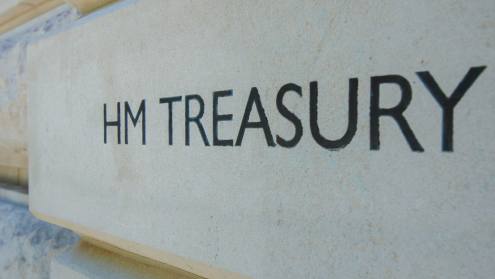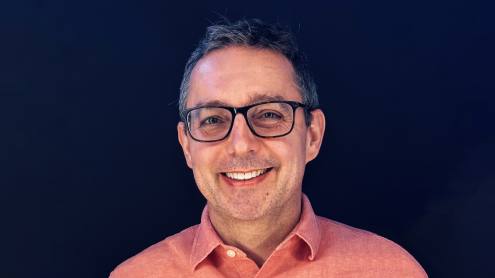Click here to view an edited video of the discussion
The panel
Charlie Corbett - Economics editor at The Banker and chair of the round table
Aloysius Ordu - Vice-president for operations, African Development Bank
Charlie Tryon - Partner at venture capital firm, Maris Capital
Torbjorn Caesar - Partner and co-head of infrastructure, Actis
Thierry de Longuemar - Vice-president for finance, African Development Bank
Nick Rouse - Managing director for frontier markets funds, Standard Bank
Nicolas Pitiot - Vice-president for banking, MediCapital Bank
Ade Adeola - Head of project finance, Africa, Standard Chartered Bank
Charlie Corbett, economics editor at The Banker, opened the Leadership series round table by quoting a recent report by the Africa Infrastructure Country Diagnostic that found that bad infrastructure in 24 selected African countries cut national economic growth by two percentage points and reduced business productivity by 40%. The same survey found that in order to bring infrastructure on the continent up to a standard whereby true efficiencies could be gained, a staggering $31bn per year needed to be pumped in.
This prompted Mr Corbett to ask the question: if infrastructure is so critical to the development of African economies, why has it been neglected for so long and where will the money come from to put this right? He asked the panel what they saw as the biggest obstacles to building and funding infrastructure in Africa.
Ade Adeola, head of project finance, Africa, for Standard Chartered Bank, said the biggest obstacles were affordability and finding reliable off-takers. "Our analysis across the market indicates very clearly that there is a mismatch between the need for infrastructure and the ability to get a strong off-taker to be able to support the financing of projects." Aloysius Ordu, vice-president of operations at the African Development Bank (ADB), said access to finance was by far the most important handicap to infrastructure in Africa. "When we think of Africa, we think in terms of 53 countries in a $1100bn economy, and if we had the right amounts of money to fund infrastructure in this continent, you could grow that $1100bn economy to $5000bn," he said.
Mr Corbett then asked Torbjorn Caesar, a partner and co-head of infrastructure at private equity company Actis, what more the banks could do to help finance critical infrastructure projects. He said that private capital should play a much bigger role than it does today, but then alluded to Mr Adeola's point that the problem was finding reliable and credit-worthy off-takers. "Longer-term, you need to have deregulation take away [untargeted] subsidies and you have to have a transparent sector with cost-reflective tariffs," he said.
Nicolas Pitiot, a vice-president for banking at MediCapital Bank, the European subsidiary of BMC of Morocco, said the key to improving the state of African infrastructure was access to long-term financing: "The private sector has a huge contribution to make but, with the credit crunch, a lot of institutions are having difficulties refinancing on very long-term maturities." Mr Pitiot also lamented the fact that in many African countries, the legal framework required to put such projects into action was not up to scratch. "If we want to see more public-private partnerships, the legal framework has to be strengthened in these countries," he said. Another difficulty highlighted by Mr Pitiot was human resources, which he said, was wanting. "The pool of talent [in Africa] exists, but it is too little now to be able to cope with a huge pipeline of infrastructure projects."
Nick Rouse, managing director for frontier markets funds at Standard Bank, struck a more optimistic note: "I think there is cause to believe things have got better recently," he said. "There has been economic growth in Africa and the number of projects we've been undertaking has grown." However, he said that the big issue was finding quality sponsors for projects or, in Mr Rouse's words, "people who can make these things happen".
Mr Corbett then asked Thierry de Longuemar, vice-president for finance at the African Development Bank (ADB), what more his bank could do to change the current situation in terms of pan-African infrastructure. Mr Longuemar said the ADB was in the process of tripling the bank's resources and was in discussions with shareholders. However, he added that one of the most critical aspects was local currency funding. "Local currency is an area where we are doing a lot, but where we could do much more, because most of our projects generate revenue in local currency and they need to avoid currency mismatches," he said.
Charlie Tryon is a partner at a venture capital fund Maris Capital, which invests in small and medium-sized enterprises in frontier and post-conflict African markets.
Mr Corbett asked him what more the commercial banks and others could do to help him get his businesses off the ground and into profitability. He said one of the areas of infrastructure most neglected is the roads. "We work in south Sudan and it is landlocked. The nearest port to the capital of south Sudan, Juba, is in Mombasa, which is 1500 miles [2414 kilometres] away. The cost of moving goods from there to Juba is $10,000 for one 40-foot [12-metre] container, which works out as $4 a mile [$6.4 a kilometre]," he said.
Mr Tryon added that another problem was that often the larger banks tended not to bother with smaller projects such as road and rail building in harsher environments. "It is a less attractive infrastructure investment for a lot of the development banks and there's a lot more risk, a lot more currency risk and the cost of business in these markets is that much higher," he said.
Watch the videoThis is an edited version of the discussion from The Banker's Exclusive Leadership Series. Click below to view more:
|
Mobile model
The panel all agreed that the most successful model for pan-African infrastructure integration was the revolution in mobile phone technology across the continent. Mr Corbett asked what lessons could be learned from this. "There was light-touch regulation, little government interference and some very committed sponsors," said Mr Pitiot.
Mr Corbett made the point that not all infrastructure investment was going to be a good commercial opportunity, as mobile phones have been, so how could investors be convinced to put money into the less commercially viable, but equally critical, infrastructure?
Mr Pitiot used the example of toll roads. He said that outside South Africa, there was just one functioning toll road in sub-Saharan Africa, the Lekki Toll Road in Lagos, Nigeria, and even that was not yet fully operational. "There are other toll road projects around - there's the tolling of the Dakar-Kumasi Road between Senegal and Ghana and there's the Nairobi ring road - but all these are unproven," he said. "It is the affordability issue. Does it actually make sense for the sort of tolls that need to be paid to make these projects economic?"
Mr de Longuemar responded that unpopular projects will always remain unpopular with some private investors so it was critical that governments took the lead. "There are some projects that require government involvement and this is the only practical response," he said. "There is a responsibility they have to take. Some are willing, some less."
Government influence
Mr Corbett asked the panel what more African governments could do to transform Africa's infrastructure. Mr Tryon said that one of the biggest challenges facing governments in frontier markets was capacity and experience. "They may be governments who are in place for very short periods of time and lack long-term perspective. There is also the issue of corruption," he said. "I have seen it in a number of countries we work in where the interplay between the government and the private sector is poorly managed and you get contractors building roads and power or utility producers who are quite frankly irresponsible and they are not up to the task to deliver the infrastructure that they are paid to deliver."
For Mr Ordu, the key to developing good infrastructure is in developing good institutional frameworks. "We have seen this in a number of countries, especially Lagos state in Nigeria, where they have put together a regulatory commission. What that does is to create a more standard model [with] a standardised procurement process and a tender process that allows strong sponsors to emerge," he said.
Mr de Longuemar said that one of the most important roles for the ADB was to act as a broker between governments in Africa and private finance. "We mitigate the risk of having to deal with governments and offer a bridge between the public sector and the private sector. It is not our expertise, not our money, nothing else. It is the risk-mitigation aspect," he said.
Mr Ordu added that the ADB also works in tandem with governments to create more sound legal and regulatory frameworks. "The second point, of course, is the business environment. In Rwanda, for example, now it takes much less time to open a business, whereas 10 years ago it used to take years," he said. Mr Ordu also alluded to problems of political instability on the continent. He said there were 14 countries in Africa officially termed fragile states. These states were moving out of periods of civil war or unrest and towards political stability. "[The ADB is] helping these countries to make sure that the procurement practices are back up to scratch, making sure that their budgets are transparent. We are helping these countries in state building," he said.
Mr Corbett asked how Actis balanced its relationships with African governments, in particular when there were questions about transparency and ethics. Mr Caesar responded that there were "multitudes of ways" of managing relationships but that it was important that development agencies such as the ADB, the International Finance Corporation (IFC), the World Bank and others were also involved. "If you are looking from a transparency point of view, institutions [such as these] make sure that there is a proper process [to structuring infrastructure finance]," he said.
Mr Caesar added that it was critical that private investors, who are committing funds for a lengthy period of time, could be reassured that the next government or regulator was not simply going to reverse all the decisions of its predecessor.
Co-operation is key
Mr Corbett questioned how African states could be encouraged to co-operate more together in order to improve the continent's infrastructure. Mr de Longuemar said he really believed that the strongest potential for growth in Africa was through intra-African trade, but that this was hindered by poor infrastructure, in particular roads and crossing points. "Some countries have already realised that, and you have got organisations such as SADC [the Southern African Development Community] that are very much aware and meet [to discuss] matters of how to make the lines of communication between states in this region much better," he said.
Mr Adeola said it was up to people such as Mr de Longuemar at the ADB to kick start such co-operation. "The ADB [exists] as a fair and honest broker that helps to provide a framework for protecting creator rights across both sides [of the border]. When you look at country risk, it gets amplified once you cross the border - we need the ADB to take a lead role."
Mr Adeola added that it was not so much the money that development agencies such as the ADB provided, but the risk mitigation. "When I look at the difficulty in getting a lot of these projects bankable, it is not really money. It is about being able to get a credit announcement that will enable private banks such as ours to deploy capital," he said. "So, even if today the ADB stopped deploying any form of debt in terms of cash and all it did was to provide country risk mitigation and credit announcements, it would probably have as much impact as it does in terms of writing the cheques. When I look at how much we could deploy if we didn't have to worry about country risk, we would probably be able to double that," he said.
Mr de Longuemar mentioned yet another challenge to promoting intra-African trade, which was to harmonise regional economic communities in Africa. "There are, I don't know how many - nine or maybe more [economic communities] - but the problem is that there are overlaps everywhere. Many countries are members of different regional economic communities," he said.
Enter the capital markets
Mr Corbett asked how outside-investors could be better reassured that their investments in Africa were safe, given the continent's widespread political and economic uncertainties. Mr Tryon said that it was possible to insure investments through organisations such as the World Bank, but that his fund had taken the view that such insurance mechanisms were not necessarily appropriate to smaller investors such as Maris Capital. He suggested that each deal was individual, but that the long-term prospects for the continent were good. "Goldman Sachs published a paper suggesting that the pan-African growth rate until 2050 could be as much as 6% gross domestic product growth per annum and I think that's a very reassuring point for investors," he said.
Mr Rouse said that Standard Bank managed funds that ran for 15 years and had brought to fruition 27 projects. "The financial structures you can get in Africa are very robust compared to other markets," he said. "It is a little bit of a myth that Africa is high-risk, because actually, when you get down to it, you get good returns and you get strong structures." A more important issue, Mr Rouse said, was about how to mobilise local currency for long-term infrastructure projects.
"There's a lot [of local currency available] in African countries. There are long-term savings in insurance companies and pension funds. All that this money does at the moment is go into government bonds. The mechanisms should [be put in place] to enable [that money] to be released for infrastructure," said Mr Rouse. "Getting pension funds to understand the issues and getting capital markets regulation in place that releases that money is very important." Mr Pitiot also made the point that there was an underlying issue concerning interest rates when it came to lending in local currencies. "Once you start to do 15-year deals and interest rates are 20%, it becomes quite difficult to make such things economic. Local currency interest rates need to be at acceptable levels, and that's a bigger macroeconomic issue," he said.
Impact of the downturn
Mr Corbett suggested that it was surprising that more than 50 minutes of debate had passed without one mention of the financial crisis. He asked the panel what impact it had had on investment. Mr Pitiot said there had been a noticeable withdrawal of commercial banks, but that development agencies had stepped into the breach. "There has actually been an international reaction to plug the gap, but in the long term, the best solution to all of this is that commercial banks are active in Africa in the same way they are in developed markets."
Mr Adeola said that Standard Chartered, as a commercial bank, had found that the downturn had made deals harder to distribute. "There was no more underwriting capacity available in the market and we were the only bank that was still underwriting transactions," he said. According to Mr Adeola, the maturity of deals to fund infrastructure fell from seven to 10 years to about three to five years. "And, of course, for any sensible infrastructure project you need a longer tenor than that," he said. Mr Adeola also suggested that central banks in Africa could play just as big a role as the development agencies in supporting infrastructure finance. "When it comes to pricing and tenor, having a central bank come in and say, 'we will backstop [a deal] when it comes to the cost of funding for a longer-term infrastructure project', is such a big catalyst," he said.
Mr Caesar added that the universe of lenders from the private sector had shrunk considerably as a result of the crisis. "If you take Egypt, where we did a $250m refinancing just before the crisis, everyone was there. There was fierce competition and extraordinary terms - not so any more," he said. Despite the difficult economic backdrop, however, Mr Caesar said that it was still possible to put together sound deals. "You can use the development agencies and partial risk-guaranteed products, and [with that] you can make good, stable, solid returns in these markets," he said.
One more thing...
Mr Corbett thanked the panelists for their contributions and asked them to name one thing that they thought needed to change, which would go the furthest in transforming African infrastructure and their ability to finance it.
"I think for us it would be investment in power," Mr Tryon said. "It is a requirement of every single business and it is seriously under-invested in. It affects our bottom line every day. We would see huge increases in profitability across our investments if we had regular, sufficient power at an affordable price.
Mr de Longuemar was clear: "Broader and deeper domestic capital markets," he said. Mr Pitiot wanted less government interference. This, he said, would allow affordable tariffs and let the private sector get on with things more.
Mr Caesar said that the future lay in giving the private sector a major role. "A lot of capital resources are standing by, waiting to come in," he said.
Mr Ordu said that the multilateral banks, such as the ADB, IFC and World Bank, were critical to building Africa's infrastructure: "We need to work much more in consultation with governments because that's where the rubber hits the road,"
he said. "[We need] to create the enabling environment for the private actors to come and play."
Mr Adeola was blunt in his response. "If there is one single thing that could change dramatically that would accelerate the growth and appetite of commercial banks and private equity parties into African infrastructure projects, it will be a situation whereby they see that the money they invest gets repaid," he said.
The issues
- Mobile model
- Government influence
- Co-operation the key
- Enter the capital markets
- Impact of the downturn
- One more thing...











